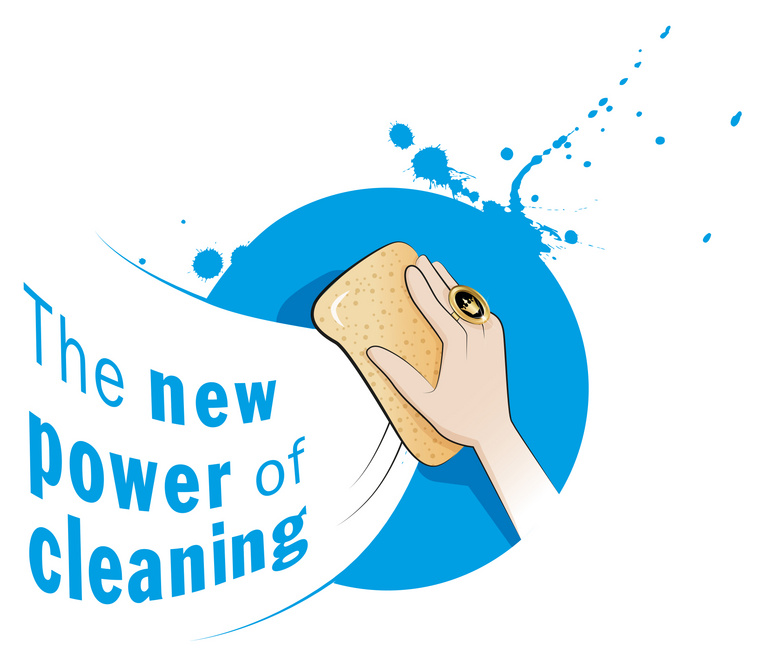Home Care Topics
The Home Care department within IKW provides competent answers to questions concerning hygiene, washing and cleaning.
Sustainability
IKW: The new power of cleaning – New appreciation of an often underestimated activity

Today, cleaning is far more than the tiresome necessity to get rid of dirt in one’s home. This is shown by an in-depth psychological-representative study published by the German Cosmetic, Toiletry, Perfumery and Detergent Association (IKW): “The New Power of Cleaning”. This IKW study (performed by rheingold salon) on the psychology of home care explains what cleaning, wiping etc really mean to people.
Those who clean remove dirt and dust from surfaces and restore order in their own four walls. But beyond the seemingly necessary evil of getting one’s home back in shape, also psychological motives have a major role. The IKW study on psychology in home care
– “The New Power of Cleaning” – highlights today’s importance of wiping, hoovering and tidying, and it identifies 5 different cleaning types.
The importance of cleaning
Jens Lönneker (head of project and managing director of rheingold salon) states: “Achieving cleanness is today more important than it has been for a long while. Cleaning helps people to better cope with daily life and to counteract a feeling of powerlessness and excessive stress. We are witnessing the new power of cleaning.”
At the present time, many people feel that their everyday routine makes overly strong demands on them. The world around them appears to be uncertain and complex. The multitude of development options in both the private and professional sphere exerts further pressure on people who fear that they might be missing out on something or could make the wrong decisions. This increases the longing for a “safe harbour”: 80% of respondents state that their home has become ever more important for them over the past years. Retreating in their own four walls also upgrades the activity of cleaning: Cleaning and tidying create their own familiar environment for people – an environment that they are missing outside their homes. 55% of respondents describe how a clean and neat living space gives them the feeling of having a better grasp on daily life. Therefore, cleaning has clearly gained in significance, with a perfectly new appreciation.
What were things like in the past?
In the post-war years it was taken for granted that homes conveyed an impression of excellent cleanness and neatness. The following decades brought some laxness in the handling of dirt and mess. Cleaning turned into a minor matter.
And what about today?
Now as in the past decades, cleaning should require as little time and room as possible. But the underlying motives have changed: Cleaning is not only an effective means for keeping one’s home in shape, it also makes a valuable contribution to stabilising one’s own psyche. Therefore, it is not surprising that this activity is perceived differently than in the past. 49% of respondents agree with the statement: “I create order and I clean; this makes me the dominant person in our household.” – i.e. those who clean gain in importance and “power”.
The cleaning types
Irrespective of the individual attitude and approach towards the topic of “cleaning”, the study results identify 5 different cleaning types who handle this power in very different ways.
Perfectionists love absolute cleanness and neatness. All dirt needs to be removed immediately after it forms. Persons of this type try to control themselves and their lives through particularly perfect cleaning. 35% of respondents are perfectionists.
Concealers prefer order in places that are visible for all. Obvious mess and dirt must be removed, but the cleaning effort should be kept as low as possible. With their cleaning behaviour the concealers show that they have control over their lives. 24% of study participants are concealers.
Rulers think that nobody cleans better than they themselves, also where cleaning is delegated to others. They only accept their own views on cleanness. 17% of respondents resemble the cleaning type of the ruler.
Hedonists are very relaxed about the topic of “cleaning” and make their highly individual decisions on what is clean. This is also reflected by the fact that persons of this cleaning type tend to develop their very own order systems. 15% of study participants are hedonists.
Persons resembling the cleaning type of controller could also be called the secret rulers. They, too, believe that they are the only ones who know how to clean properly. But unlike the rulers, controllers present themselves to the outside world as servants who do all of the cleaning work. However, they reserve for themselves the control over cleaning and clean¬ness. 10% of the respondent men and women are the controller type.
Comparison of results
Today’s results are also interesting when looking back at the study on cleaning that the IKW carried out back in 1996. For example, the number of those who agree with the statement
“It is important to me that everything is always spick and span” has risen clearly. By contrast, the number of those who accept the statement “Housework is a necessary evil. One should get over and done with it as quickly as possible.” has gone up only slightly. Bernd Glassl (head of the IKW home care section) comments the results from 1996 and today:
“We wanted to know what has changed over the past 20 years in the attitudes vis-à-vis cleaning and home care. It is remarkable that meanwhile cleaning no longer solely serves its very purpose, namely, getting things clean. Beyond that, cleaning also gives security to many people and makes it easier for them to manage everyday life.”
About the new study
Qualitative questions were put in group discussions and individual in-depth interviews to 36 persons in Cologne, Stuttgart and Rostock; the respondents were between 25 and 55 years of age. Representative quantitative questioning in an online panel comprised ca. 1,000 persons aged 18 and over.
Here you can download the Press Release and the Study Summary.
